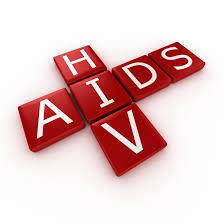
$ 5 m “PropteX” Program aims to support startups, innovation
Paragon Developments has teamed up with Adeer International, PMaestro alongside their German partner, QNTF, to ...

Globally, an estimated 6,000 young women and girls become infected with HIV each week. This devastating reality is particularly stark in Angola where new HIV infections among women aged 15-24 are more than double those of young men, according to the United Nations Development Program (UNDP). But the next generation of female activists are fighting back. Mobilizing in local communities, they are increasing awareness of HIV and health issues, improving access to HIV support and services for their peers and challenging inequality.
The end of the 27-year civil war in 2002 in Angola heralded a new beginning. But widespread inequalities, poverty and a climate change-induced drought in the Eastern and Southern provinces have pushed people’s coping mechanisms to the limit. Angola is one of the few countries in Africa where new HIV infections and AIDS-related deaths have risen in the last ten years.
Only 42% of people living with HIV are estimated to know their status in Angola. This is far behind the global target of 90% of people living with HIV knowing their HIV status by 2020. Efforts to increase access to HIV testing services that are free of stigma and discrimination are vital. For adolescent girls and young women this means HIV approaches must be tailored to their specific needs so that information is shared by someone they can relate to and trust. HIV testing facilities must also be made available at sites they can access and where they feel comfortable.
Responding to this clarion call are women-led community groups known as Bancadas Feminanas – which translates to ‘women’s band’. Led by trained female Activistas, the groups work in local neighborhoods, using local languages, to increase awareness of HIV and health issues and to encourage women and girls to know their HIV status.
As highlighted by the Global Commission on HIV and the Law, confidential and independent access to health services is essential to ensuring people can protect themselves from HIV. But young people face significant legal and policy barriers to accessing HIV testing services, with some countries requiring parental or guardian consent. Addressing these challenges and opening the conversation on HIV and health issues in families and communities is paramount.
Adolescents often fall through the gaps in HIV services and are less likely than adults to be tested for the virus. For this reason group leaders receive training on social mobilization and HIV, and meetings are advertised via school and church networks. The trained Activistas also promote the meetings in their own neighborhoods and marketplaces to help reach adolescent girls who are out of school.
7 in 10 young women in sub-Saharan Africa do not have comprehensive knowledge about HIV, and fear and discrimination continue to fuel myths and misconceptions. Yet community-led organizations are well placed to break down these barriers, as they invoke trust and treat their peers with respect and dignity.
To increase awareness of HIV and health issues among young women and adolescent girls in Angola, the groups use storytelling, music and drama to help break down barriers.
To date, the Bancadas Femininas have reached over 33,000 adolescent girls and young women, supported by United Nations Development Rrogram (UNDP), the United Nations Population Fund (UNFPA), Ajuda de Desenvolvimento de Povo para Povo Angola (ADPP) and the Global Fund to Fight AIDS, Tuberculosis and Malaria.
In 2018, only 38% of pregnant women living with HIV accessed antiretroviral medicine to prevent transmission of the virus to their baby in Angola. Preventing transmission of HIV to the next generation is fundamental to ending the epidemic and networks of pregnant women and mothers are playing a major role in offering social protection, safety, solidarity and support.
The support provided by UNDP, the Global Fund and partners, including Obra da Divina Providência, Management Sciences for Health (MSH) and MWENHO, is designed to help empower women and adolescent girls through initiatives in their own communities. Women and adolescent girls living with, or affected by, HIV are on the front line of the fight to end the epidemic and are best placed to deliver support to their peers. Thanks to the work of community-led organizations, globally, over 24.5 million people have access to HIV treatment as of mid-2019.
In a world of rising inequalities, fragility, and discrimination, communities are a critical part of the solution to global challenges. Whether it is to achieve Sustainable Development Goal 3 of ensuring healthy lives and well-being for all, Goal 5 of gender equality, Goal 16 of peace, justice and strong institutions, Goal 10 of reduced inequalities, or many of the other SDGs, the role of community organizations is more important than ever.
Paragon Developments has teamed up with Adeer International, PMaestro alongside their German partner, QNTF, to ...
Crédit Agricole Egypt Foundation for Development and Schneider Electric have successfully concluded the Second Phase ...
The European Commission (EC) has decided to register a European Citizens’ Initiative (ECI) entitled ‘Save ...


اترك تعليقا